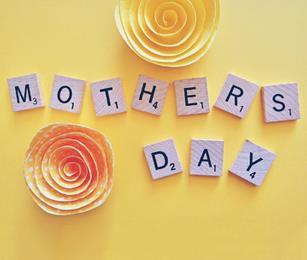
When I was in my early 20s, I assumed that by my mid-30s, I’d be married with a couple of kids.
By 35, I knew I was pushing my luck, but I was engaged – with baby-making on the agenda as soon as we got hitched – so I was hopeful all would be well. Of course, that was before my fiancé ditched me for someone else (don’t feel bad for me – it was a blessing in disguise, although the timing could have been better).
Even when I hit 40, I reckoned I still had a chance of meeting a good man in time to squeeze out a baby or two before my ovaries expired.
Now, in my mid-40s and still single, I have to accept the harsh reality that, unless God pulls an Abraham-and-Sarah miracle for me (unlikely), or I go down the route of heavy-duty fertility treatments (not really for me, especially as a lone woman sliding into middle age at breakneck speed), I’ll never be a mother. To be honest, I still can’t quite believe it.
Of course, I’m far from alone. Thanks to the gender imbalance in the Church, many Christian women end up feeling painfully let down when, after decades of faithfully praying and waiting, they finally have to relinquish their dreams of having children. And Mothering Sunday can bring that grief into particularly painful focus. “I’ve spent my whole life yearning to be a mum,” confided one friend. “A service celebrating motherhood is an agonising reminder I don’t need.”
I suspect it’s never occurred to some church leaders – especially those who married young and effortlessly produced a small tribe of offspring – what Mothering Sunday is like for someone who is childless, and not by choice. But if a pastor is open and empathetic, a simple chat may be all that’s needed to make the penny drop. A service that also remembers those who grieve for the babies they’ve lost, or the ones they’ve never had, and celebrates women who’ve been a mother figure to those they haven’t given birth to, can help to make the day about mothering, as well as mothers (are you listening, leaders?).
A good Mothering Sunday service can bring comfort and help on the road to healing, so we shouldn’t be afraid to cry or ask for prayer (we won’t be the only ones). But if it stirs up too much raw emotion, we should also give ourselves permission to stay away (I have, many times). We’re allowed to protect ourselves from painful experiences, so we shouldn’t feel guilty (or allow others to make us feel guilty) if we take a Sunday off.
Planning something completely different can help to take our minds off it (it’s also worth avoiding social media with its endless reminders of the joys of motherhood) or some quiet time alone with God may feel right. Creating a little ritual to ease the grief, such as lighting a candle or writing a letter to the child we never had, can help.
It’s important to allow ourselves to feel our feelings, but it’s also good to stay optimistic about the positive things God may have in store for us. It may not be exactly what we dreamed of, but many people look back in later life with happiness and satisfaction at the unexpected path God has taken them on, and see that “in all things God works for the good of those who love him” (Romans 8:28). So let’s give our dreams and our sadness to our heavenly Father, and remain hopeful for a happy future.
+ Would Like To Meet… (£6.99, BRF) is the funny and heartwarming story of HopefulGirl’s four years on the Christian dating scene. Connect with HopefulGirl at www.facebook.com/HopefulGirlUK and www.twitter.com/HopefulGirlUK




























